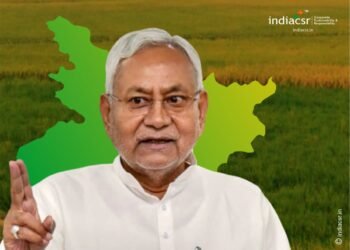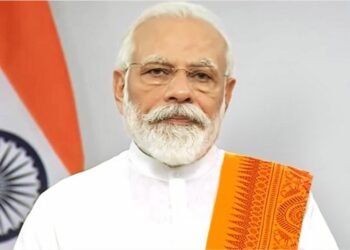In this FAQ, we will address some of the key questions and concerns surrounding the documentary and the reactions to it.
The BBC Modi Documentary has sparked much controversy and debate in India. The documentary, which focuses on the 2002 Gujarat riots and the role of Prime Minister Narendra Modi and his government’s response to the riots, has been met with both praise and criticism.
Q. Who is Narendra Modi?
Answer: Narendra Modi is the 15th Prime Minister of India, not including those who have been re-elected. He is the 4th Prime Minister to have served two consecutive terms and the first Prime Minister from a non-Congress party to have completed two consecutive terms in office. He has been in office since May 2014, and is a member of the Bharatiya Janata Party (BJP) and the Rashtriya Swayamsevak Sangh (RSS). Prior to his role as Prime Minister, Modi served as the Chief Minister of Gujarat from 2001 to 2014.
Q. What is the BBC documentary on Modi?
Answer: The BBC documentary on Modi is a two-part series aired by the UK’s national broadcaster, the BBC, that critiques Modi’s tenure as Gujarat Chief Minister during the Gujarat riots of 2002. The documentary sparked controversy and outrage, and was removed from select platforms.
Q. What is India’s stance on the documentary series?
Answer: India’s official stance on the BBC documentary series on Prime Minister Narendra Modi is that it is a propaganda piece designed to push a discredited narrative. The External Affairs Ministry spokesperson Arindam Bagchi said during a weekly media briefing that the bias, lack of objectivity, and a continuing colonial mindset are blatantly visible. The documentary sparked controversy and outrage, and was removed from select platforms. The Indian government and some Indian-origin UK citizens have criticized the documentary, calling it biased, propaganda, and having no objectivity. Furthermore, over 300 eminent Indians, including retired judges, bureaucrats, and armed forces veterans, signed a statement slamming the British national broadcaster for showing “unrelenting prejudice” towards India and its leader.
Q: How has the Ministry of Information and Broadcasting described the documentary?
Answer: The Ministry of Information and Broadcasting rejected the documentary produced by BBC as a “propaganda piece” that lacks objectivity and reflects a colonial mindset. The documentary was not made available in India by BBC, but it was available on YouTube for some time.
Q: What did USA spokesperson Ned Price say about the documentary?
Answer: US State Department spokesperson Ned Price said that he is not familiar with the documentary, but he is familiar with the shared values that strengthen the US’ global strategic partnership with India, calling India’s democracy a vibrant one.
Q: How did UK Prime Minister Rishi Sunak respond to the documentary?
Answer: UK Prime Minister Rishi Sunak defended Modi and distanced himself from the BBC documentary series, saying he “doesn’t agree with the characterisation” of his Indian counterpart.
Q: How did the Ministry of External Affairs in India respond to the BBC documentary?
Answer: The Ministry of External Affairs (MEA) in India called the documentary biased and propaganda, and raised questions about the purpose and agenda behind it.
Q: What was the reaction of prominent Indian-origin UK citizens to the BBC documentary?
Answer: Prominent Indian-origin UK citizens condemned the series and called for regional stability in South Asia.
Q: What did the US Department say about the BBC documentary?
Answer:: The US Department spokesperson said that the US will continue to work closely with India to promote peace and security in the region.
Q: Who organized a screening of a documentary inside the Hyderabad Central University?
Answer: The Student Islamic Organisation (SIO) and Muslim Student Federation, known as the Fraternity group, organized a screening of the BBC documentary on Prime Minister Narendra Modi inside the Hyderabad Central University. More than 50 students from these groups attended the screening. The police said that they have received the information that some students organized the screening inside the campus but haven’t received any written complaint.
Q: What did the Democratic Youth Federation of India (DYFI) announce about the screening of the documentary?
Answer: The DYFI announced on its social media handles that it had decided to screen the documentary in the state and that a show would be held at Poojappura in Thiruvananthapuram under the aegis of the local DYFI committee.
(Disclaimer: Based on Media Reports)
(India CSR)

















